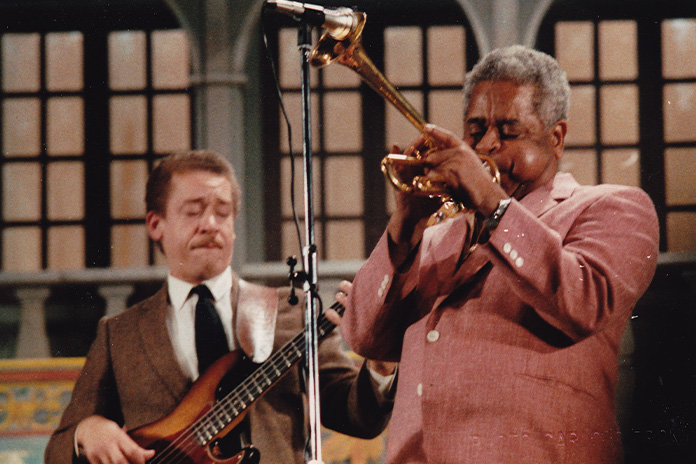
THE much-travelled John Lee is always eager to explore new places and sounds. But while the flavours of a new country may entice him, he’s also curious about how the sounds work their way into the rhythms that drive his ongoing love for jazz music.
As the Director of the Dizzy Gillespie Bands, John Lee has enjoyed a long and enduring relationship with the fabled trumpet player and the family of musicians that have grown around the brand name.
Currently in town for the Lion City Jazz Festival 2024 at the Singapore Chinese Cultural Centre, Lee is involved in several classes, lectures and performances as part of Dizzying Heights, which celebrates the music of the man with the ‘bullfrog cheeks’, Dizzy Gillespie.
Lee will lead The Dizzy Gillespie Band on Mar 1, and be involved in a finale concert the following night, together with members of the Jazz Association (Singapore), which is presenting the festival.
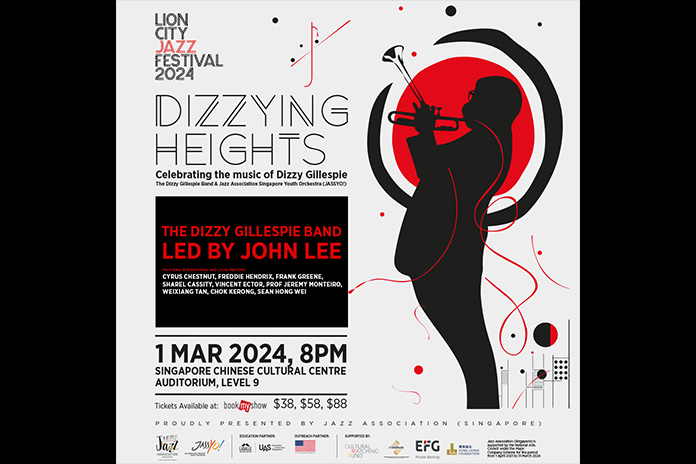
Lee who has had a celebrated career working as a bassist with some of jazz music’s greats — Max Roach, McCoy Tyner, James Moody, Aretha Franklin, among others — spent a large part of it with Dizzy, who together with Charlie Parker broke Bebop into the jazz vernacular.
Touring with Dizzy taught Lee invaluable life and jazz lessons that he now continues to impart to others as the leader of the various Dizzy Gillespie ensembles.
Lee is also an audio engineer and record producer who has been at it since the 1970s and struck gold with Jazz Batá 2 by Chucho Valdez, which won the 2019 Grammy for the Best Latin Jazz album. It pays to persevere.
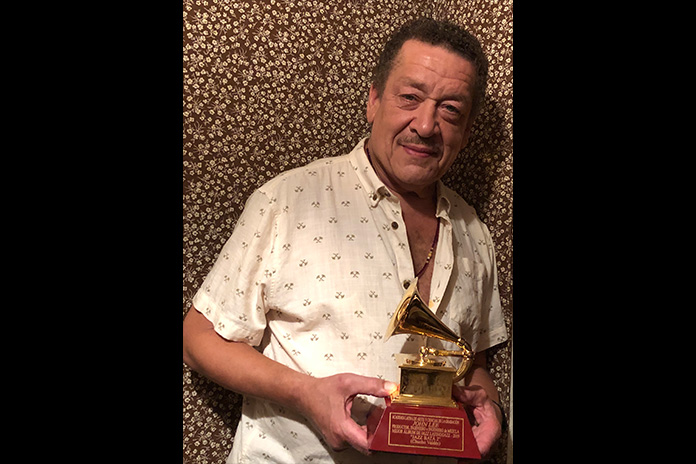
Open To Influences
Much of Lee’s influence as a band leader is the result of an open-minded approach to performing, which has resulted in a rich reservoir of ideas and approaches that are at his disposal.
The son of a church minister who loved jazz, Lee was guided by his father’s taste in music.
“My father was a great Count Basie fan. He was a minister who loved jazz, and he played in the Navy. My father had two Miles Davis’ albums — Kind Of Blue and Someday My Prince Will Come. He picked the right ones to influence me.
“One day I came home with John Coltrane’s A Love Supreme, one of the greatest albums, and my father said, ‘You call that jazz?’
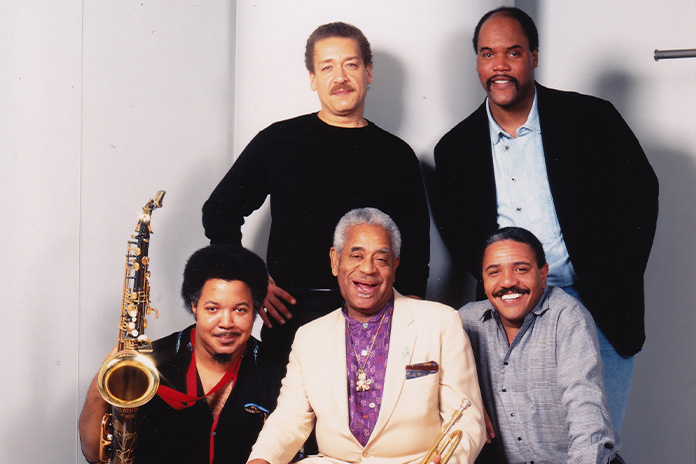
“What he didn’t realise was that Coltrane played on the Miles Davis albums. But he’d changed with the times.
“It’s a generational thing,” Lee reckons.
Lee does his best to bust the “generational thing”. He stays open minded to music and how it’s evolving, and having worked with Dizzy Gillespie, he was exposed to a wide variety of music.
“Dizzy kept music light, like a party. What I loved is every night we would do swing, bebop, Afro-Cuban, funk, Brazilian and Argentinean music. It was such a variety of different things, and it always kept you on your toes. You weren’t pigeonholed into one thing.”
Mentoring The Next Generation
That enforced sense of open-mindedness still guides him today, especially when it comes to mentoring new musicians.
“I personally spend a lot of my time trying to mentor musicians that I see a great future in.
Our music to begin with, is a mentor type form, more than classical music. You know, I came up under Dizzy, Dizzy came up under Roy Eldridge. There’s always this next generation.
“In a way, it’s one of the hardest parts of what we do because we have to bury them, too,” he adds as a grave side note.
“I think the older we get, the more our mentorship matters because we’ve compiled enough knowledge.
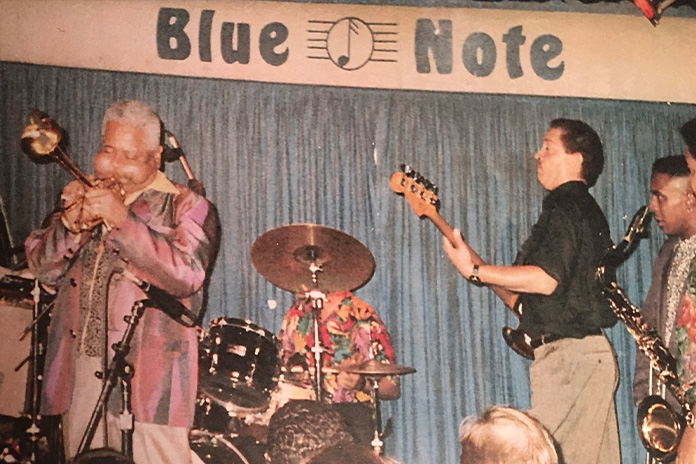
But Lee sees potential in some of today’s young talent.
“Youth today need to be inspired,” is Lee’s simple observation.
“They have so many tools we didn’t have. I mean you’re hearing some very technically proficient young virtuosos, and I attribute a lot of their success to the tools they have at their disposal.
“Like all of a sudden, you hear of a young white bass player from the North of Ireland playing John Coltrane’s solo on Giant Steps on a Fender bass.
“It’s like, you’ve got to be kidding me. How did he figure that out? The tools, that’s how he figured it out.
“So, now it’s how to inspire them to really become a little fanatical about their craft, because the greatest musicians that I’ve met in my lifetime, were all pretty much fanatics, you know.
“That’s all they did. At the top level, they just lived for the music.
“I’m talking about the very top level, that little group of Dizzy and Bird and Bud Powell and those guys. It is about those great, great ones.
“They didn’t have much life besides that. That’s the way they just were.”
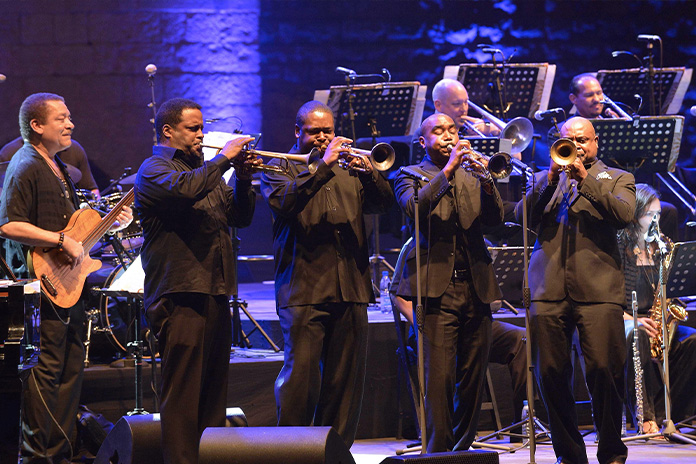
Early Morning Calls
“Dizzy’s wife, told me about Dizzy and Bird when they were very young. It was just non-stop searching. She said the phone would ring at five in the morning and there’d be J.J. Johnson: ‘I need to speak to Dizzy.’ He’s asking about a chord and what to play on a certain chord because they’re in some basement where they’d been all night trying to get this music, you know. It was exhilarating for them.”
Lee is hopeful that the younger musicians who will carry the torch will take advantage of the tools they have and still find the hunger within to continue to break new ground.





















